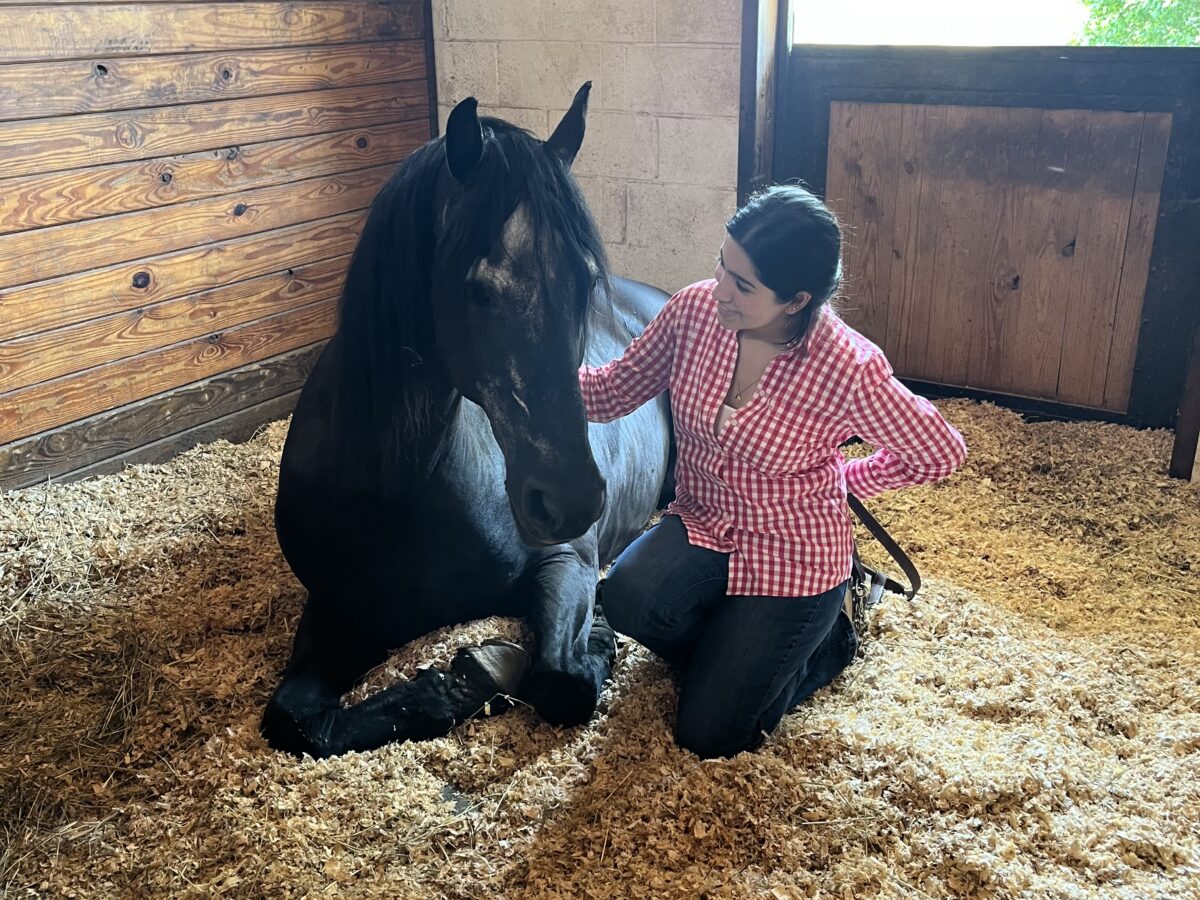Five questions with an equine vet in training

What Danixza Pinto ’25 learned in and out of the saddle
Danixza Pinto ’25 spent three weeks in Coatesville, Pennsylvania, this summer shadowing equine veterinarian Dr. Celia Goodall P’24 as part of Exeter’s mentor-based internship program that pairs students with alumni and parents eager to provide meaningful opportunities. Spearheaded by Instructor in Science Anne Rankin ’92, the program supported 22 students this year in 14 internships in such varied fields as engineering, plastic surgery, ocean health systems science and distressed real estate asset management.
Do you remember your first experience with a horse?
All my life I have been surrounded by horses. My parents grew up on farms. My maternal grandfather was a breeder and trainer for Paso Fino horses. My mom attended several horse shows and competed with her own horse, Jabón. The first time I got on a horse, it was for therapeutic reasons. I was a few months old and rode bareback with only the padding of my diaper, but it was purposeful for the hippotherapy to improve my mobility, motor and cognitive skills. Not only did horses make my first steps and words possible, but they also introduced me to one of my favorite sports.
What drew you to this internship?
Out of appreciation for these outstanding and amorous animals, I’ve always believed it important to learn how to care for them so that I could return the favor. Alongside volunteering for ESSO Equine, a club dedicated to working at an animal rescue, back home in Brooklyn, New York, I have enjoyed working with my local stables to rehabilitate abused horses and provide them emotional comfort. However, I had never had the opportunity to learn how to care for horses’ health. I was thrilled by the opportunity to learn how to properly care for horses’ health and be able to identify and address their needs.
Were the days all work and no play?
Outside of working with Dr. Goodall, I would help her feed the three horses on her property and muck their stalls. During my free time, I had access to ride outside and even had a schooling lesson, so it was very much an immersive and fun experience!
What were your biggest takeaways from the internship?
My initial preconception was that equine vets were primarily for routine or sick visits, similar to that of any health practitioner; however, from the very start, I realized that Dr. Goodall’s job was not as simple as people may think. Notably, most horses we treated were seen for lameness, but the health care did not stop at treating the condition; it continued by improving the quality of life and making the horse more comfortable. It was a very enriching experience to see the impact of regenerative medicine on horses. Horses who were once ill-mannered and demonstrated difficulty at the walk/trot became elated, athletic horses who could finally run free of pain — and the best part is that that was made possible through science!
Did the experience also change how you think?
The other most impactful takeaway from the internship was becoming more open-minded, especially about euthanasia. I had always thought that every horse could be saved or that at least every horse had the right to. Dr. Goodall’s bravery and professionalism taught me a new perspective. Sometimes, the kindest option is also the option that may be very difficult to do, but regardless, quality of life, especially for horses, is of utmost importance.
This article was originally published in the Fall 2024 issue of The Exeter Bulletin.